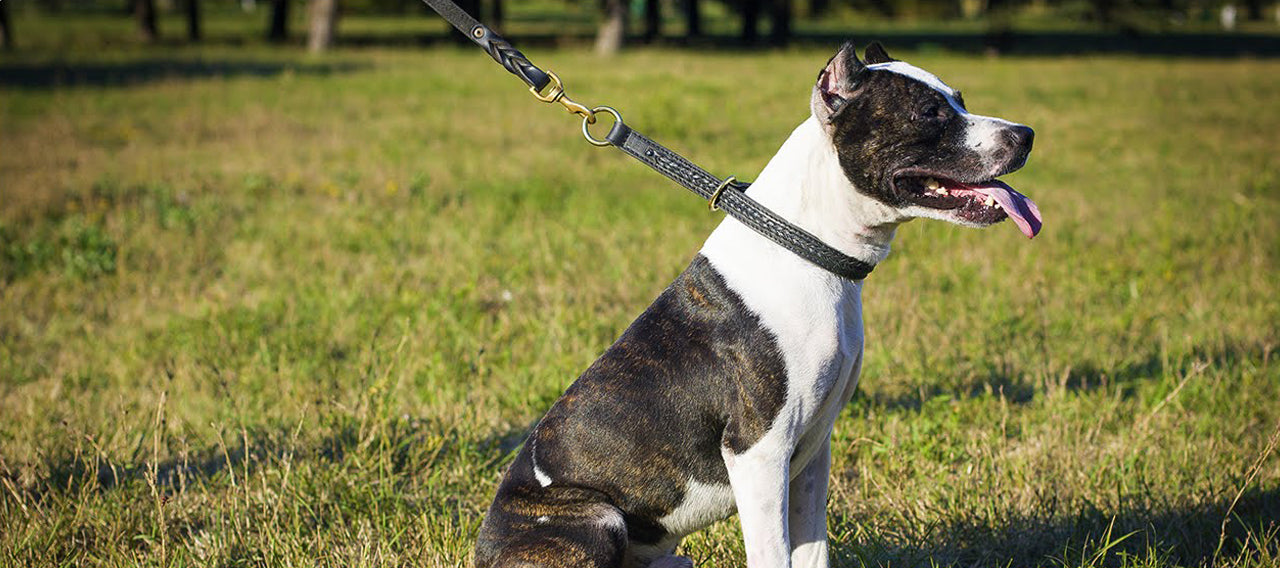Your Cart is Empty
Free shipping on all orders within the U.S.

Most dog owners have mixed feelings about choke collars. Some like it for training, some believe it’s cruel. Fact is, choke collars were originally designed to inflict pain and discomfort for aggressive and stubborn dogs that pulled away from their owners. However, when used properly it can be an effective tool for correcting and training dogs. The proper way to use a choke collar requires the owner to use only gentle jerks when correcting the dog. Dogs with short noses and bulging eyes like the Pug or Boston Terrier, or those with small tracheas like the English Bulldog, are at greater risk for injuries with the choke collar, and thus they are not recommended for use on small dogs. Improper use of choke collars can result in a crushed or bruised trachea, or a fracture or dislocation of the neck bones, among other injuries. A choke collar that is too big around the dog’s neck makes it is easier for them to chew the chain, which can also cause damage to their teeth.
A safer alternative to a choke collar, and one that most dog owners consider to be more humane and secure, is the Martingale collar. Instead of choking the dog based on how much it pulls, like the choke collar, the Martingale is made to tighten just enough to get the dog’s attention, which is one reason it’s an ideal collar for training purposes. The martingale is most suitable for long necked dogs such as the Greyhound, Whippet, Borzoi or Saluki. For these types of dogs there is less of a chance the collar would slip off after being properly adjusted, it tightens up only slightly with a bit of pulling pressure. Although the Martingale collar is a safer alternative to the choke collar, it should NOT be kept on your dog while they are unsupervised, it should only be used when hooked to a leash or lead. If not, it can adjust itself into its fully expanded position and would be at risk for getting caught or hooked to objects during playtime.
It’s ultimately up to the dog owner to decide what type of collar they will use. Just remember to refrain from using a choke collar on small dogs or those with short noses and bulging eyes. If you’re looking to train your dog, consider the martingale collar, which will only partially tighten when the dog pulls and is a safer alternative to the more common choke collar.
If neither of these are good options for your dog, consider flat leather dog collars. Most include a D-ring to attach a leash and any dog tags, and overall make a great "every day" collar.